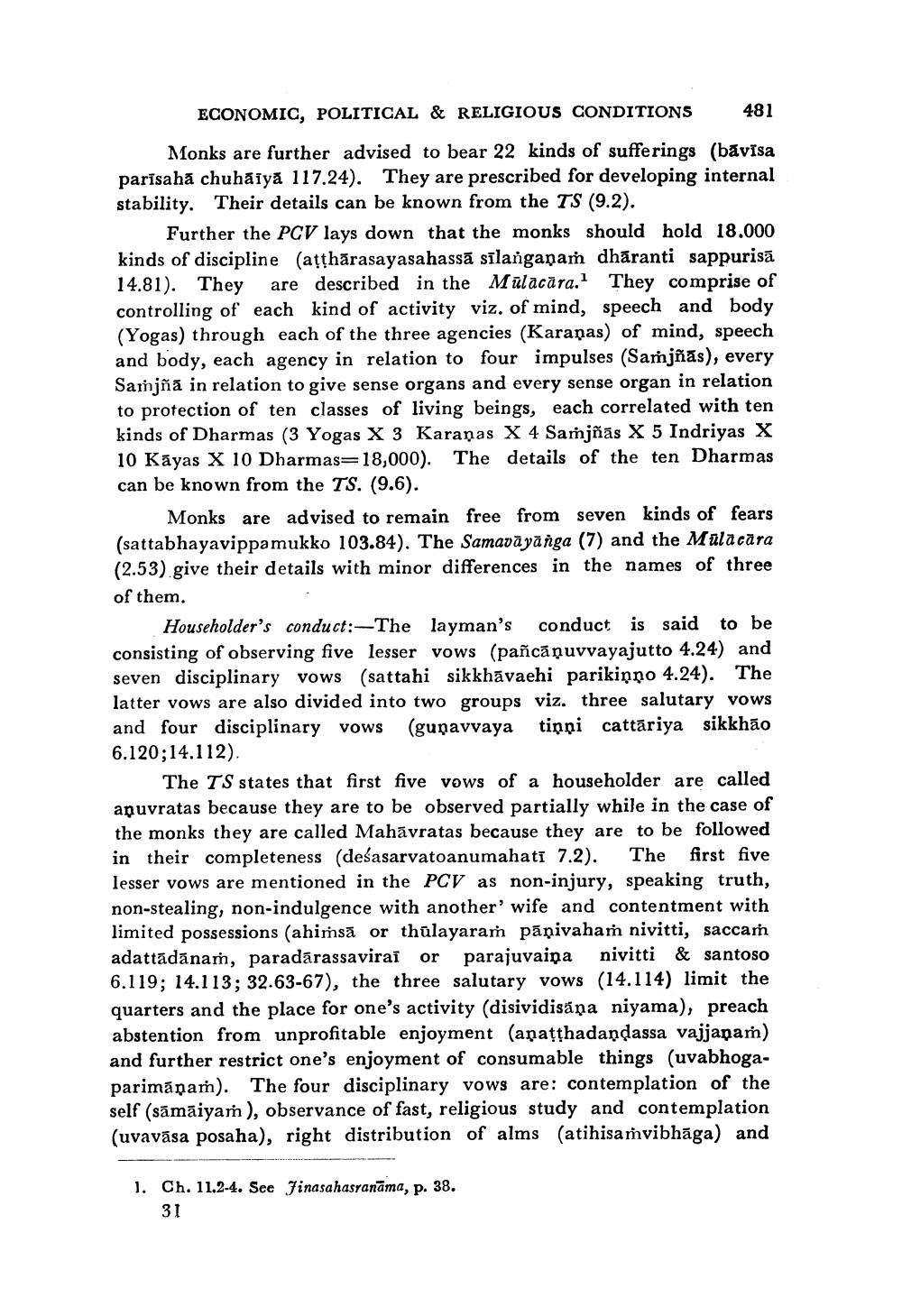________________
ECONOMIC, POLITICAL & RELIGIOUS CONDITIONS 481 Monks are further advised to bear 22 kinds of sufferings (bavisa parisaha chuhāryā 117.24). They are prescribed for developing internal stability. Their details can be known from the TS (9.2).
Further the PCV lays down that the monks should hold 18.000 kinds of discipline (atthārasayasahassā sīlarganaṁ dhāranti sappurisā 14.81). They are described in the Mülacāra. They comprise of controlling of each kind of activity viz. of mind, speech and body (Yogas) through each of the three agencies (Karanas) of mind, speech and body, each agency in relation to four impulses (Sarjñās), every Sarjña in relation to give sense organs and every sense organ in relation to protection of ten classes of living beings, each correlated with ten kinds of Dharmas (3 Yogas X 3 Karaņas X 4 Samjñas X 5 Indriyas X 10 Kāyas X 10 Dharmas=18,000). The details of the ten Dharmas can be known from the TS. (9.6).
Monks are advised to remain free from seven kinds of fears (sattabhayavippamukko 103.84). The Samavāyānga (7) and the Malacāra (2.53) give their details with minor differences in the names of three of them.
Householder's conduct:--The layman's conduct is said to be consisting of observing five lesser vows (pañcāņuvvayajutto 4.24) and seven disciplinary vows (sattahi sikkhāvaehi parikiņņo 4.24). The latter vows are also divided into two groups viz. three salutary vows and four disciplinary Vows (gunavvaya tiņņi cattāriya sikkhão 6.120;14.112).
The TS states that first five vows of a householder are called apuvratas because they are to be observed partially while in the case of the monks they are called Mahāvratas because they are to be followed in their completeness (deśasarvatoanumahati 7.2). The first five lesser vows are mentioned in the PCV as non-injury, speaking truth, non-stealing, non-indulgence with another' wife and contentment with limited possessions (ahiṁsā or thūlayaram pāņivahań nivitti, saccam adattādānam, paradarassavirai or parajuvaiņa nivitti & santoso 6.119; 14.113; 32.63-67), the three salutary vows (14.114) limit the quarters and the place for one's activity (disividisána niyama), preach abstention from unprofitable enjoyment (aņaţthadandassa vajjanaṁ) and further restrict one's enjoyment of consumable things (uvabhogaparimāņaṁ). The four disciplinary vows are: contemplation of the self (sāmāiyam), observance of fast, religious study and contemplation (uvavāsa posaha), right distribution of alms (atihisamvibhāga) and
1. Ch. 11.2-4. See Jinasahasyanāma, p. 38.
31




